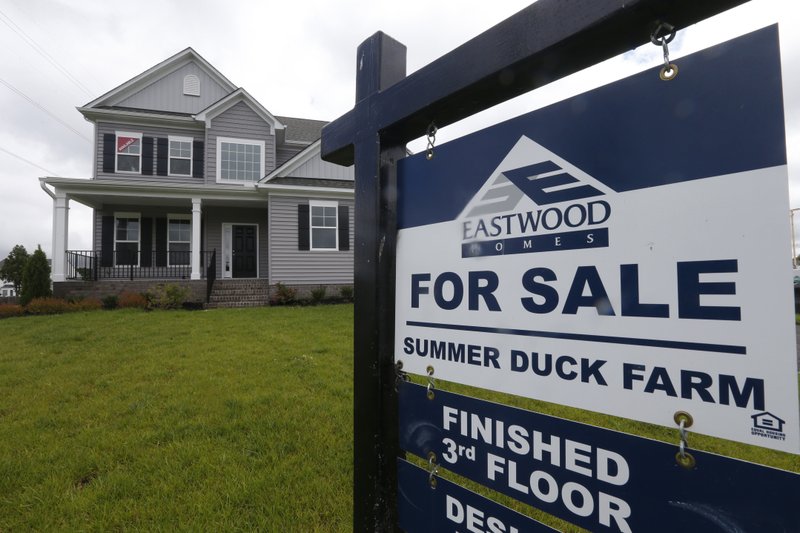WASHINGTON -- U.S. long-term mortgage rates climbed this week in a volatile market amid deepening anxiety over devastation to the economy from the coronavirus pandemic.
Home loan rates had hit all-time lows two weeks ago. Mortgage buyer Freddie Mac reported Thursday that the average rate on the benchmark 30-year loan jumped to 3.65% this week from 3.36% last week.
Freddie Mac said the short-term rise was caused by mortgage lenders increasing prices to deal with booming demand for refinancing into loans at historically low rates.
The average rate on the 15-year fixed-rate mortgage rose to 3.06% from 2.77%.
[CORONAVIRUS: Click here for our complete coverage » arkansasonline.com/coronavirus]
The recent decline trend in mortgage rates has been driven by investors shifting money out of the stock market and into the safety of U.S. Treasurys as the crisis in confidence around the global viral outbreak has worsened. Long-term mortgage rates tend to track the yields on the 10-year Treasury note, so they typically fall in tandem.
Financial markets have shuddered amid a cascade of cancellations and shutdowns across the globe because of the covid-19 virus. Wide swaths of the U.S. economy have ground closer to a standstill as authorities ask Americans to stay home to slow the spread of the virus.
After weeks of losses, U.S. stock prices see-sawed Thursday between gains and losses on Wall Street. Investors are weighing the growing likelihood of a recession against the extensive emergency efforts by the Trump White House, Congress and other authorities around the world to shore up economies.
The record low mortgage rates have been a boon to potential home buyers, and they give many homeowners an opening to refinance into lower-rate loans to free up money to spend or save.
But prospective buyers may be reticent to shop for homes amid the coronavirus outbreak, seeking to avoid social contact or take on debt, experts note. That could slow home sales. And ultra-low mortgage rates aren't likely to produce a significant rise in home sales this year because the supply of homes for sale remains at historic lows.
Each week, Freddie Mac surveys lenders to compile its national mortgage rate figures. The average doesn't include extra fees, known as points, which most borrowers must pay to obtain the lowest rates.
The average rate for a five-year adjustable-rate mortgage jumped this week to 3.11% from 3.01% last week.
"Mortgage rates jumped sharply this week, as volatile swings in stock markets, government spending to help cushion the growing fallout from the coronavirus crisis and underlying stresses in the broader markets weakened demand for government debt," said Matthew Speakman, a Zillow economist.
The Federal Reserve slashed its benchmark rate to zero on Sunday and began purchasing $500 billion in U.S. Treasurys and $200 billion in mortgage-backed securities, a move reminiscent of the recession's quantitative easing program.
The Fed does not set mortgage rates. Mortgage rates are more closely linked to long-term bonds. The yield on the 10-year Treasury grew to 1.18% Wednesday, its highest level this month. With institutional investors selling bonds to raise cash, the 10-year yield has more than doubled since earlier this month.
"Under normal circumstances, we would see the bond market improve as stocks plummet, but we are not in a normal market," said Elizabeth Rose, certified mortgage planning specialist at AmCap Home Loans in Plano, Texas. "Stocks are taking a beating but instead of money flowing into bonds - thus rates improving -- investors are selling bonds to cover margin calls."
Information for this article was contributed by staff members of The Associated Press and by Kathy Orton of The Washington Post.
Business on 03/20/2020
